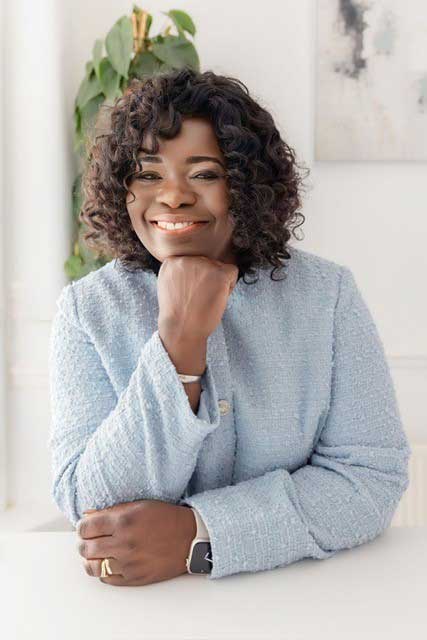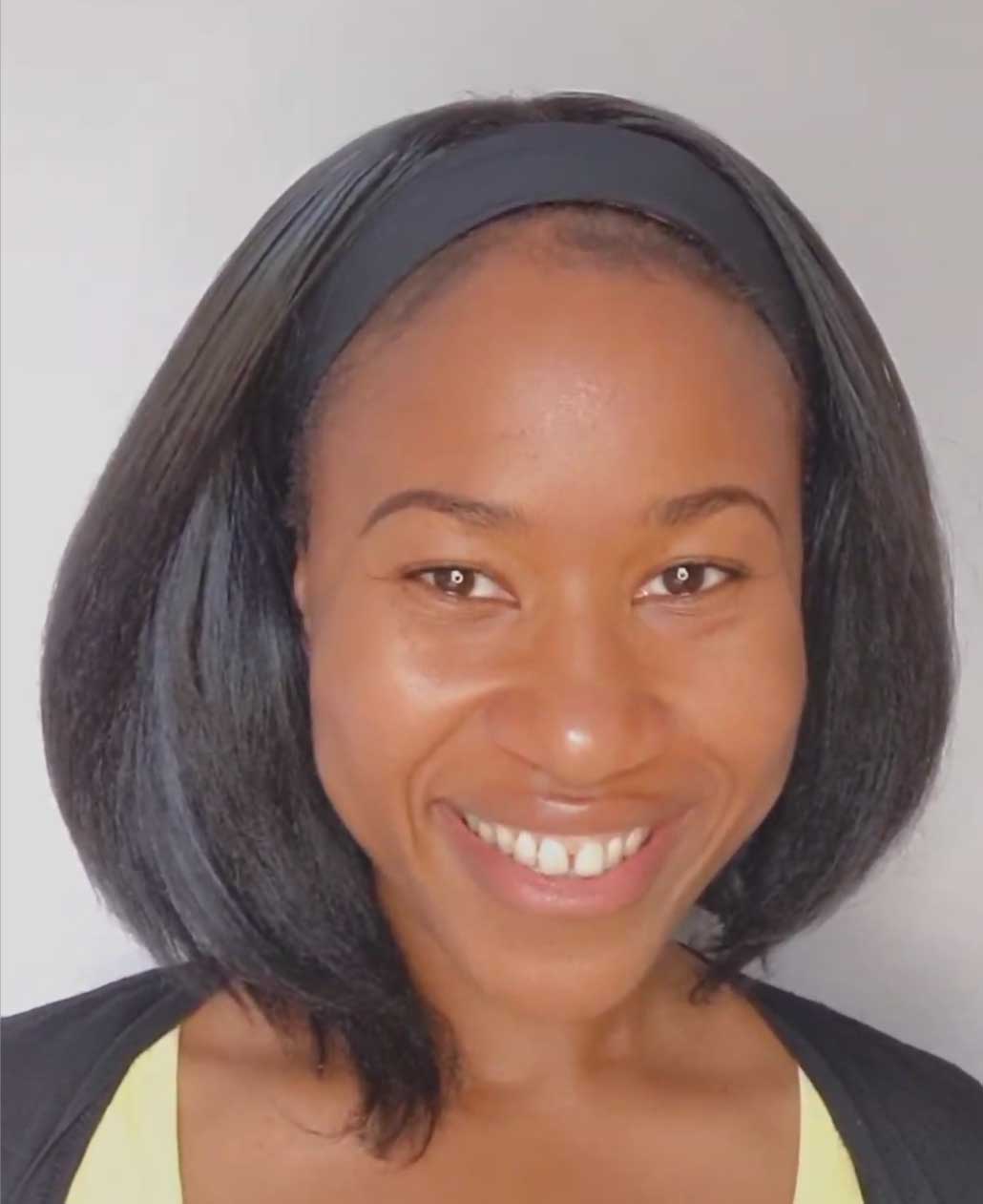Every October, we mark Black History Month by encouraging people across Change Grow Live to share their voices and their experiences.
This year, the theme for Black History Month was "Saluting Our Sisters." It was an opportunity for us all to pay tribute to the remarkable work of black women and their place in our collective history.
We asked black women from across Change Grow Live to share their stories of the women who’ve inspired them – and how their inspiration has shaped their own journeys.
Dr Catherine Muyeba told us how another doctor became her ‘big sister’
Chris Ayton spoke about the black women who taught her there’s no such word as ‘can’t’
Dr Melissa Butler explained how she looks to generations of black women for inspiration and guidance
 Dr Catherine Muyeba is a Regional Lead Consultant Psychiatrist. She explains how another doctor became her ‘big sister’ and guided her journey.
Dr Catherine Muyeba is a Regional Lead Consultant Psychiatrist. She explains how another doctor became her ‘big sister’ and guided her journey.
"When I saw that this year’s theme is Saluting our Sisters, I began to think about the black women who champion and support others. It’s so important to know that people like that exist. There is value in having mentors and role models that we can look up to and approach, or people who can inspire and guide us from a distance.
The person that comes to mind for me is another doctor who mentored me when I first came to the UK. My plan was to wait until my husband had finished his training and then return to Zambia, but during that time I decided to gain some experience by working as a phlebotomist at a busy A&E department in Manchester.
While I was there, I met another doctor who was originally from Africa, and she became like my big sister. She convinced me that this was an opportunity for me to gain more experience in medicine and pursue it as a career. I could practice medicine in the UK and gain that experience, and then decide what I wanted to do.
At that time, I had given up on the dream of practicing medicine, but she instilled the confidence in me to take that plunge. I decided to study for the exam – and lo and behold, I passed the exam, and the rest is history!
I did several junior doctor roles and then trained to become a psychiatrist, which eventually led me to my current role. Throughout that time, we’ve continued to be friends, and she continues to inspire me – she really is like a big sister to me.
After I had qualified and become a consultant, I was invited back to that same hospital in Manchester to deliver a talk for the consultants who work there now – so it really brought everything full circle! For me, it was another reflection that not only did that doctor mentor me, she saw beyond what I could see. She invested in me as a fellow black African woman, and I was able to give that back to other people.
We can never progress on our own; we live our life with others, so it’s a question of ‘who’ and not just ‘how’. When we identify and champion those people in our lives who’ve helped us progress from one step to another, we show that there is a path that can be followed."
Chris Ayton is the manager of St Luke’s Drug and Alcohol Service in Barking and Dagenham. She tells us about the black women whose achievements taught her that there is no such word as ‘can’t’.
"For me, black history is about more than a month, because I’m black 365 days a year. It’s always important to recognise our forebears and what they fought for to get us to where they are today. It’s important to acknowledge the contribution that black people have had in developing our country and our world.
I am very proud that we are celebrating our black sisters. For too long, black women have not been acknowledged, respected and appreciated for what they contribute. As a black woman, I feel we have to fight adversity from being perceived as just stereotypical housewives and mothers. We have a lot of knowledge and experience that we can teach.
I’ve seen a lot of black heroes of mine who have fought to be appreciated for who they are, and I’d like to think that that the black women I know and associate with do the same.
One of those heroes is Cicely Tyson. She was one of the first black actresses that I saw being recognised for her roles and her contribution in the way that she should have been. She died at the age of 99 and was acting right up until then, always remaining humble and carrying herself with grace. She spoke in a way that showed she cared about people, regardless of where they’d come from.
Another inspiration of mine is the poet and activist Maya Angelou, who again came from a very humble background, and just kept striving to get the best out of people. Whatever adverse things she came across, she would turn those negatives into a positive.
There are many more, but those two mean a lot to me because when I was growing up, they were among the first people I saw being celebrated that looked like me. They weren’t just saying “as a black woman, you have to do this.”
They were saying “as a woman, as a black woman, this is what you can achieve and don’t let anyone tell you that you can’t.”
I’ve taught my children that there’s no such word as ‘can’t’. Whatever they want to achieve, they can get it. They might have to work harder for it, but don’t forget that the opportunity is there just as it is for anybody else.
I take inspiration from my black mother, my black aunties, the two women I’ve mentioned already, and so many more. I see the way they carry themselves with grace and determination, and not allowing anything to stop them being a mother, a grandparent, a sister, an auntie, being a part of a community, never forgetting where they came from but always striving for more."
 Dr Melissa Butler is a Principal Counselling Psychologist in the Rough Sleeper team in Tower Hamlets, supporting people who are unhoused and street homeless. She explains how she looks to generations of black women for inspiration and guidance.
Dr Melissa Butler is a Principal Counselling Psychologist in the Rough Sleeper team in Tower Hamlets, supporting people who are unhoused and street homeless. She explains how she looks to generations of black women for inspiration and guidance.
"I see marking Black History Month as our way of standing alongside black people, and celebrating everything that they bring to our organisation and to the people who use our services.
When I think about how black women have shaped me and my career, I look to different women for different things – whether it’s in the psychological field, in healthcare, in writing and activism and in politics to name just a few.
I salute our sisters for their innovation and creativity in finding new ways to occupy spaces that were once off limits. I celebrate how our sisters continue to boldly break through glass ceilings and defy expectations, all while redefining what the norm is.
I’ve seen so many black women create something new, something different, and from that I’ve taken inspiration and thought “What does this mean to me? How can I embody this within my life, within my career?” And, how can I use this to try and support other people? Because one thing that I celebrate about our sisters is that they’re not just helping themselves, they’re helping us, maybe without even realising it – and I want to follow that sequence as well.
I salute all sisters irrespective of age, complexion, education status, upbringing, or ability. In a time when we are constantly being compared to one another, I remind us all that we are each unique and have our own style, characteristics and personalities which are worthy to be acknowledged and celebrated.
On a personal note, the sister I celebrate the most is someone who I admire, respect, and am constantly in awe of: my mum.
I celebrate us all, and I’d encourage everyone to do the same. I salute the sisters that have paved the way before me. I stand with the sisters alongside me now and I throw my support behind the next generation of black women."
